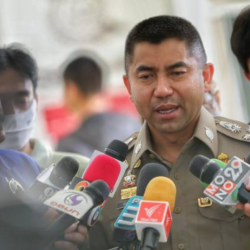Media organizations oppose media ethics bill

Thai media professional organizations have raised objection to a bill seeking to set up a council to regulate media ethics due to be taken up for deliberation by the House on Tuesday.
They expressed fears that the bill will pave the way for those in power to intervene to restrict media freedom.
At the heart of the bill, which was adopted by the Cabinet early last year, is a professional council for media practitioners of all platforms. It will be administered by a 10-member board which will comprise representatives of the media, human rights, consumer protection groups, and academics to be chosen through a selection process.
The council will receive annual funding of at least 25 million baht from the Broadcasting and Telecommunications Research and Development Fund for Public Interest (BTFP).
The bill requires all media organizations to be registered with the council and comply with the ethical standards. Though the council would have no legal power to penalize media professionals or organizations that breach the code of ethics, it can issue reprimand and impose other forms of social sanctions.
At least three major media professional organizations have issued statements to strongly oppose the bill in the past few days. They include the News Broadcasting Council of Thailand, the Thai Broadcast Journalists Association and the Thai Journalists Association.
They raised questions about the motive behind the bill which they said is out of sync with today’s media landscape and which was initiated without enough input from people in the media industry.
“It may turn out to be a tool to curtail media freedom in the future,” said the statement from the Thai Broadcast Journalists Association.
The Thai Journalists Association called on the House to postpone its deliberation of the bill scheduled for Tuesday and seek wider public opinions on it.
The drafting of the bill was initiated in the aftermath of the military coup in 2014. The National Council for Peace and Order, the official name of the military junta, treated the bill as one of the items on its so-called “urgent agenda”.
While the bill also extends protection to the independence of state-run media outlets, it requires them to
One highlight of the bill, proposed by the Public Relations Department and drafted by the Council of State, is that members of state-run media have the right to defy the orders of their superiors if such orders are deemed to violate media ethics, but the exercise of that right must take into account the objectives or missions of state media.
The media profession’s council will be run by a 10-member board, to be selected from people who have experience or are specialised in professional media, in human rights or in consumer protection laws.
The council will receive annual funding of at least 25 million baht from the Broadcasting and Telecommunications Research and Development Fund for Public Interest (BTFP).
The Media Profession Council will be assisted by a permanent office, which will take charge of general and accounting affairs and facilitate the operations of the council and the Ethics Committee.






